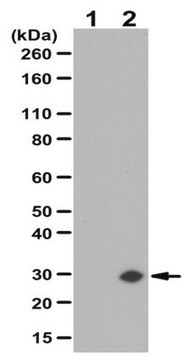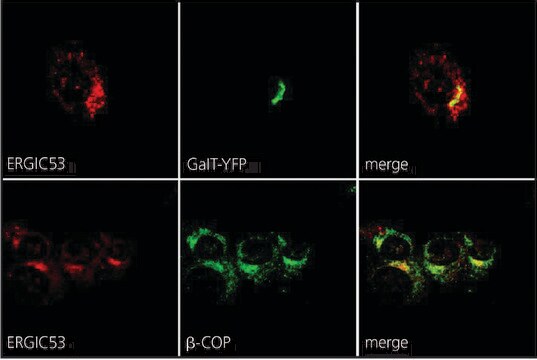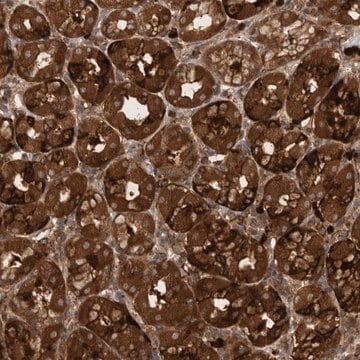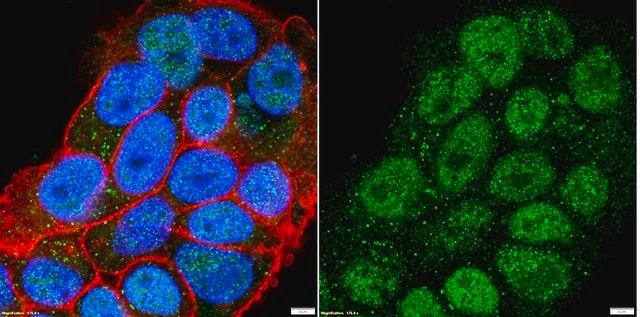G6916
Anti-GADD153 antibody produced in rabbit
affinity isolated antibody, buffered aqueous solution
Synonym(e):
Anti-CHOP-10
About This Item
Empfohlene Produkte
Biologische Quelle
rabbit
Konjugat
unconjugated
Antikörperform
affinity isolated antibody
Antikörper-Produkttyp
primary antibodies
Klon
polyclonal
Form
buffered aqueous solution
Mol-Gew.
antigen 29 kDa
Speziesreaktivität
human
Methode(n)
immunocytochemistry: 5-10 μg/mL using Hela human cell
microarray: suitable
western blot (chemiluminescent): 1:200-1:400 using whole cell extract of HEK-293 over-expressing GADD 153.
UniProt-Hinterlegungsnummer
Versandbedingung
dry ice
Lagertemp.
−20°C
Posttranslationale Modifikation Target
unmodified
Angaben zum Gen
human ... DDIT3(1649)
rat ... Ddit3(29467)
Allgemeine Beschreibung
Immunogen
Anwendung
- nuclear and cytoplasmic fractions extracted from rat insulinoma (INS) cells to study CHOP Expression in response to ER stress
- whole cell lysates prepared from ER stress induced rat pancreatic tissues
- whole cell lysates prepared from ER stress induced pancreatic insulin-producing cells
It is suitable for immunocytochemistry at a working concentration of 5-10μg/mL using Hela human cell and microarray. It is also suitable for western blotting at a working dilution of 1:200-1:400 using whole cell extract of HEK-293 over-expressing GADD 153.
Biochem./physiol. Wirkung
Physikalische Form
Haftungsausschluss
Sie haben nicht das passende Produkt gefunden?
Probieren Sie unser Produkt-Auswahlhilfe. aus.
Analysenzertifikate (COA)
Suchen Sie nach Analysenzertifikate (COA), indem Sie die Lot-/Chargennummer des Produkts eingeben. Lot- und Chargennummern sind auf dem Produktetikett hinter den Wörtern ‘Lot’ oder ‘Batch’ (Lot oder Charge) zu finden.
Besitzen Sie dieses Produkt bereits?
In der Dokumentenbibliothek finden Sie die Dokumentation zu den Produkten, die Sie kürzlich erworben haben.
Unser Team von Wissenschaftlern verfügt über Erfahrung in allen Forschungsbereichen einschließlich Life Science, Materialwissenschaften, chemischer Synthese, Chromatographie, Analytik und vielen mehr..
Setzen Sie sich mit dem technischen Dienst in Verbindung.






